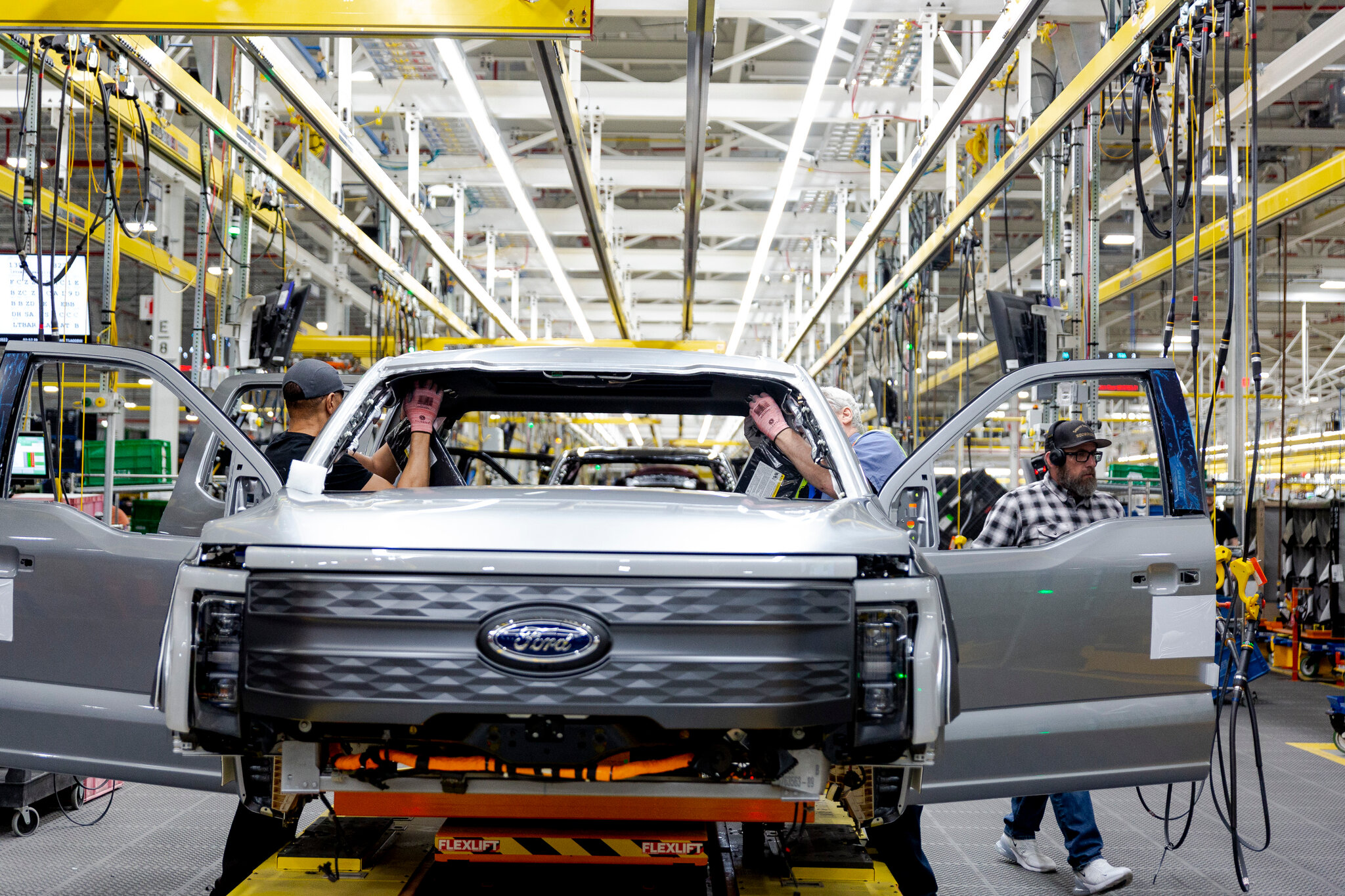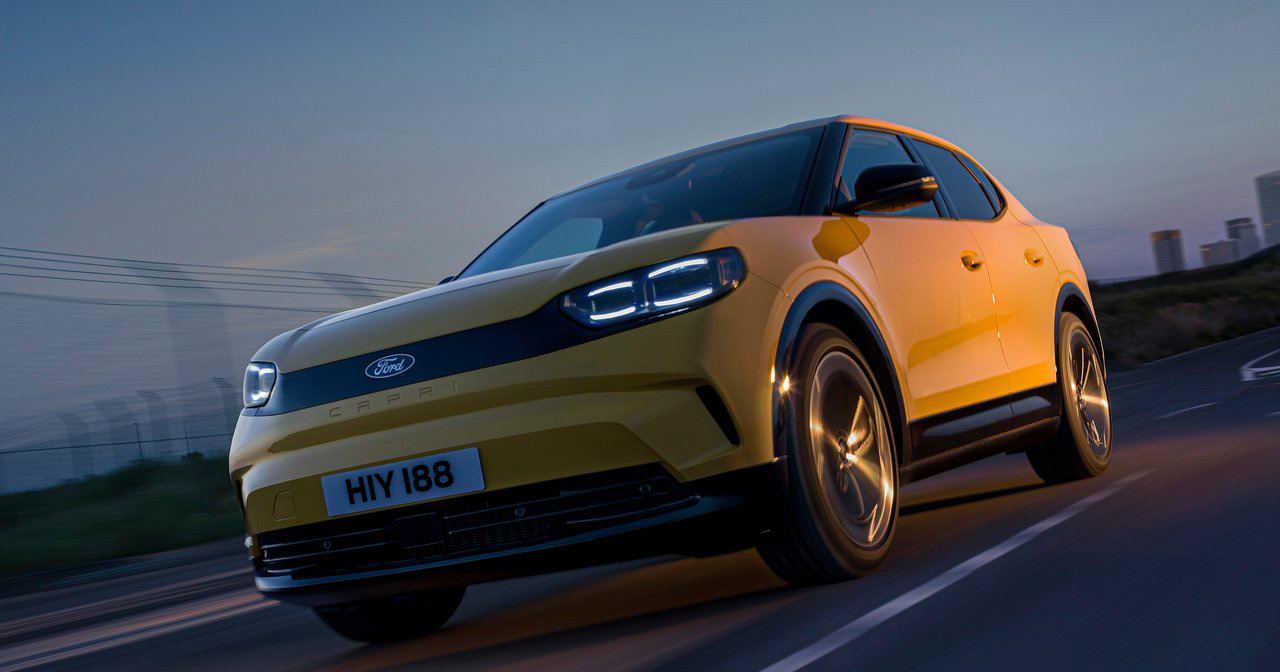Ford’s ambitious electric vehicle (EV) plans are facing significant challenges as the American automaker has been forced to scale back production of its two latest EV models due to low demand. The Explorer SUV and the controversial Capri, which are both manufactured at Ford’s Cologne factory, are experiencing sales far below expectations. This downturn in demand is attributed to broader weak conditions in the EV market, particularly in Europe, where demand for electric cars, especially in Germany, has been slower than anticipated.
The new Ford Explorer SUV, which began production in June, and the electric Capri, which started rolling off the assembly line in September, were both meant to be key models in Ford’s European EV strategy. However, both vehicles have struggled to gain traction in the market, leading Ford to adjust its production plans. A company spokesman confirmed that Ford has been producing more vehicles than it can sell, highlighting the growing difficulties in the global EV market.

The situation comes at a time when other automakers, such as Volkswagen, are also feeling the pinch of declining EV sales. Volkswagen recently announced it might need to lay off thousands of employees, cut salaries, and even close some of its factories due to the slump in EV demand. The decline in sales is especially evident in Europe, where the market for electric cars has been slower to grow than expected.
The Ford Capri, in particular, has faced backlash from enthusiasts. The vehicle, which shares its platform with Volkswagen’s electric models, has been criticized for straying far from the design and spirit of the classic Capri. Fans of the original model have expressed their discontent, calling Ford’s decision to name an electric SUV after the Capri a “blasphemous” move. Despite a high-profile launch campaign featuring former footballer Eric Cantona, the Capri has failed to meet sales expectations.
As a result of these challenges, Ford has implemented temporary production cuts at its Cologne plant. Workers on the Explorer and Capri assembly lines are now on a “one week on, one week off” schedule, which will continue until Christmas. The Cologne plant, which was recently upgraded with a $2 billion investment to focus on EV production, has a capacity of 250,000 units annually. However, Ford’s sales in Europe have fallen by 15.3% in the first three quarters of the year, exacerbating the challenges facing the automaker as it continues its transition to an all-electric lineup. Ford had originally planned for an all-electric fleet by 2030, but has since revised that goal, acknowledging the uncertainty surrounding EV demand and regulations in Europe.

